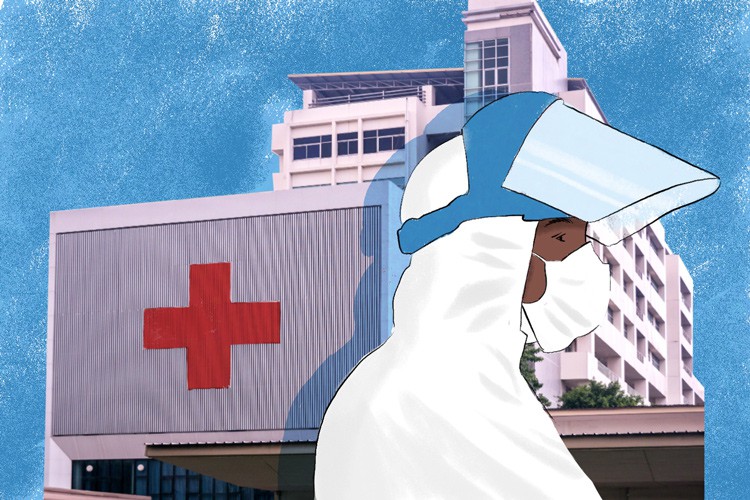
5 March 2021
Two terminally ill people are giving testimony in advance of a court case that may decide if doctors can assist patients to die. Illustration: Lisa Nelson
The media and the public have been barred from hearing the evidence of palliative care doctor, Suzanne Walter, who is seeking to change the law in South Africa to legalise euthansia. This is to protect the confidentiality of patients.
Judge Neels Claassen is sitting on commission hearing the evidence ahead of a trial, expected to be set down later this year, in case Walter and her co-litigator Diethard Harck, are too ill to testify or have died by then.
Harck, who has motor neuron disease, has already given evidence and been cross examined.
Walter, who has terminal multiple myeloma, is expected to refer to patient cases in her evidence. At the conclusion of Wednesday’s session, Advocate Hendrik van Nieuwenhuizen said Walter would refer to about five patients. The documents had been redacted, removing patients names and other personal details. They would be referred to as patients A,B, C and so on.
On this basis, he did not believe the hearing had to be in camera.
Walter is expected to give evidence of immense suffering by some patients who wished to die but were prevented from doing so because both physician assisted suicide (where the doctor prescribes and the patient self-administers) and physician assisted euthanasia (where the doctor administers any medicine to end life) are criminalised in South Africa.
However, Advocate Adrian D’Oliveira, for the Health Professionals Council of South Africa (HPCSA), which is dead against decriminalisation, said they had many patient cases to present and it was impossible to say which ones would be used because that depended on the evidence.
It would be difficult to redact them all and there was a possibility that the front of a file may slip into view at the hearing, which is being heard via Zoom.
On Thursday morning, Advocate Van Nieuwenhuizen said it had been agreed between the parties that Walter’s evidence in chief and cross examination would be heard in camera and they were approaching a judge for an order directing this.
“If any media person has a difficulty with this, I point out that they will not be prejudiced because they will have the appropriate record in due course.”
He referred to case law, which affirmed that in terms of the Hippocratic oath, a doctor had to “keep silent” about information regarding a patient.
He also said the HPCSA deemed it “unprofessional conduct” for a doctor to divulge any information about a patient without their express consent.
“We do not wish it to be suggested that our intention is to hide anything from the public or the media. It is in light of patient confidentiality that we have come to this conclusion,” he said.